Why study Aerospace Engineering?
Engineer tomorrow’s air and space systems
With Aerospace Engineering here at Manchester, the sky really is just the beginning.
From satellites to supersonic jets, aerospace engineering shapes how we explore, connect, and innovate. A degree in aerospace engineering equips you to solve high-stakes challenges across air and space.
- Learn the science behind aircraft, UAVs, and spacecraft, and space challenges.
- Design smarter, safer, and more sustainable aerospace systems.
- Gain technical and leadership skills for careers in design, operations, research, management, and beyond.
Meet Ciara McGrath
Blast off with Ciara McGrath, an aerospace engineer who's reaching for the stars and breaking boundaries.
In this video, she shares her journey from knocking on her lecturer’s door to working on Scotland’s first spacecraft. Now, she’s on a mission to orbit real-world problems with smarter satellites.
Ciara proves that engineering isn’t just nuts and bolts, it’s rocket fuel for change.
How you’ll learn
Where expertise meets education
Our expert academics bring leading research and real-world experience into the classroom, ensuring you learn from those shaping the future of engineering. With a balanced mix of lectures, tutorials, labs, and workshops, our staff turn complex theory into practical insight, helping you thrive in both study and industry.
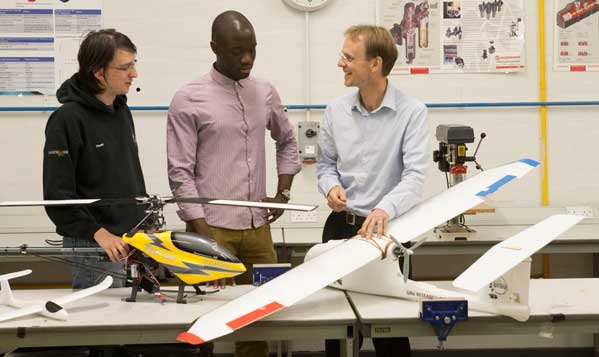
Learning spaces to drive innovation
Learn in our purpose-built spaces for innovation and creativity that are transforming the way our students study, research, and shape the world forever. As an aerospace student, you will also have the chance to explore our flight simulation lab and other facilities.
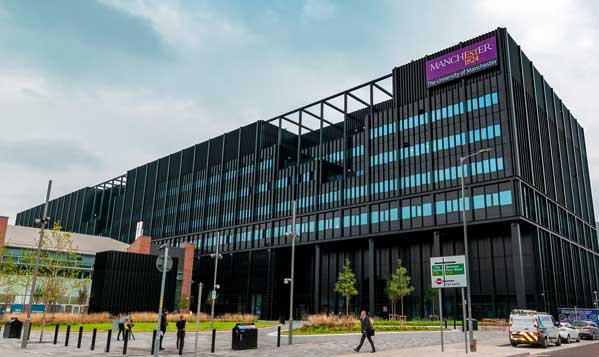
Peer support
Stay on top of your studies with resources like our Peer-Assisted Study Sessions (PASS). Here, you’ll be matched with a mentor who runs weekly small-group sessions to work through your tutorial questions, share tips, and guide you through tougher topics.

Beyond the classroom
Field courses offer you a unique opportunity to apply theoretical knowledge in real-world settings.
By engaging in hands-on projects and site visits, you'll gain practical experience that enhances your understanding of aerospace engineering principles.
Study options
Integrated master's
The MEng year integrates engineering science with multi-faceted projects, allowing you to apply both technical and practical skills. Specialist units provide advanced knowledge, while inter-disciplinary projects offer real-world experience and the chance to gain specialised skills before launching your graduate career.
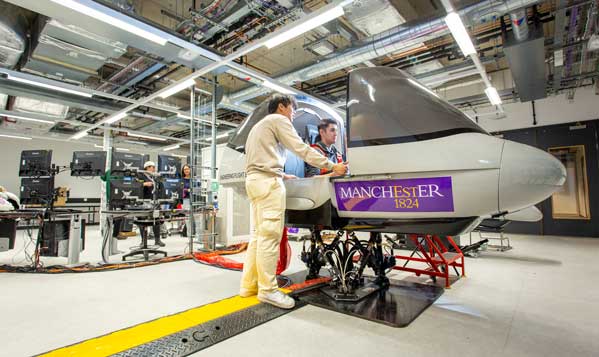
Industrial experience
Industrial experience allows you to spend a year working in industry as part of your degree. This is the perfect chance to apply your learning in a real-world setting, develop professional skills, and gain valuable insight into how the aerospace sector operates, giving you a head start in your career.
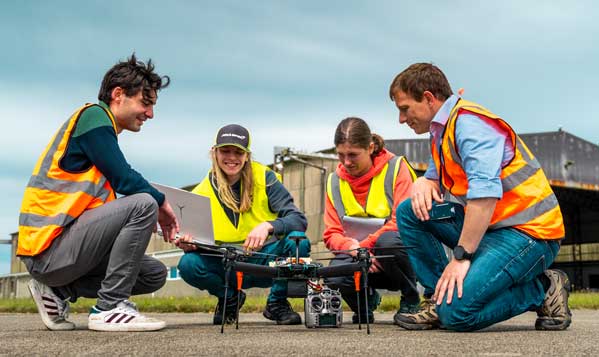
Foundation year
Prepare for a degree course by first undertaking our Foundation Year. This is the perfect option for students who may not yet meet the typical entry requirements for direct entry to an undergraduate degree.
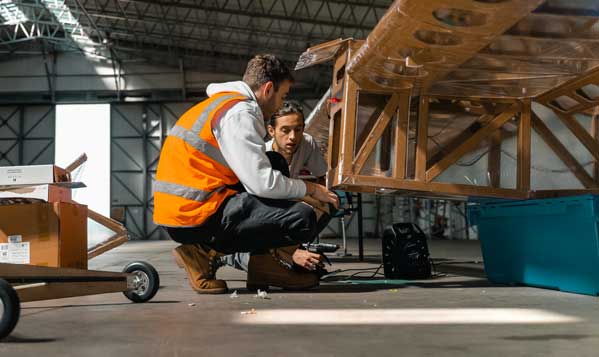
Careers
Who do our graduates work for?
Our aerospace engineering graduates go on to work for employers such as Rolls Royce, Jaguar Land Rover, BAE Systems, and more.
What do our graduates do?
The roles you can step into upon graduation include:
- Aerospace engineer
- Design engineer
- Manufacturing systems engineer
- CAD technician
- Researcher
- Higher education academic
- Production manager
- Financial roles
- ... and so much more.
Our careers service
At Manchester, we don’t just teach you, we support you in planning your future from day one. Whether you're exploring career options, applying for internships, or preparing for graduate roles, you’ll have access to one-to-one support, advice, and workshops, equipping you with the confidence to succeed in a competitive job market.
Courses
Find the right course for you
There are options available to you if you want to study aerospace engineering at Manchester.
Accreditation
These degrees are accredited by the Royal Aeronautical Society and the Institution of Mechanical Engineers under licence from the UK regulator, the Engineering Council.
Accreditation supports your path to professional registration as a Chartered or Incorporated Engineer, and is valued by employers in the UK and abroad.
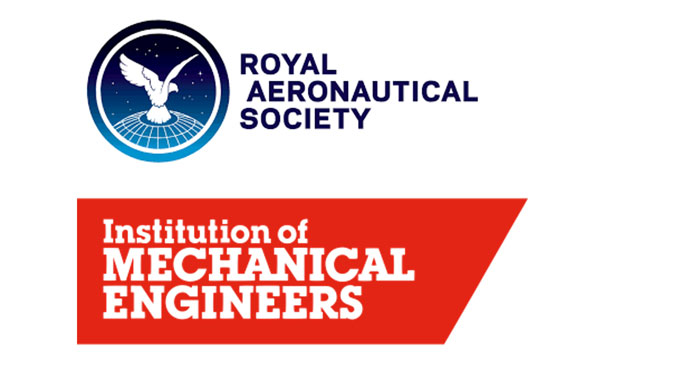
Day in the life of an aerospace student
Wondering what it’s like to study Aerospace Engineering at Manchester? Follow Shoaib through a typical day, from campus life to downtime, and get a glimpse into what it means to be part of our vibrant engineering community.
How to apply
Start your journey to an undergraduate degree in aerospace engineering
If you’re interested in applying to the Aerospace Engineering degree at Manchester, here’s what you need to know.
Contact us
Have any questions? Get in touch
Department of Mechanical and Aerospace Engineering Undergraduate Admissions
- Tel: +44 (0)161 275 8200
- Email: ug.mae.ce@manchester.ac.uk
General undergraduate enquiries
- Tel: +44 (0)161 275 2077
